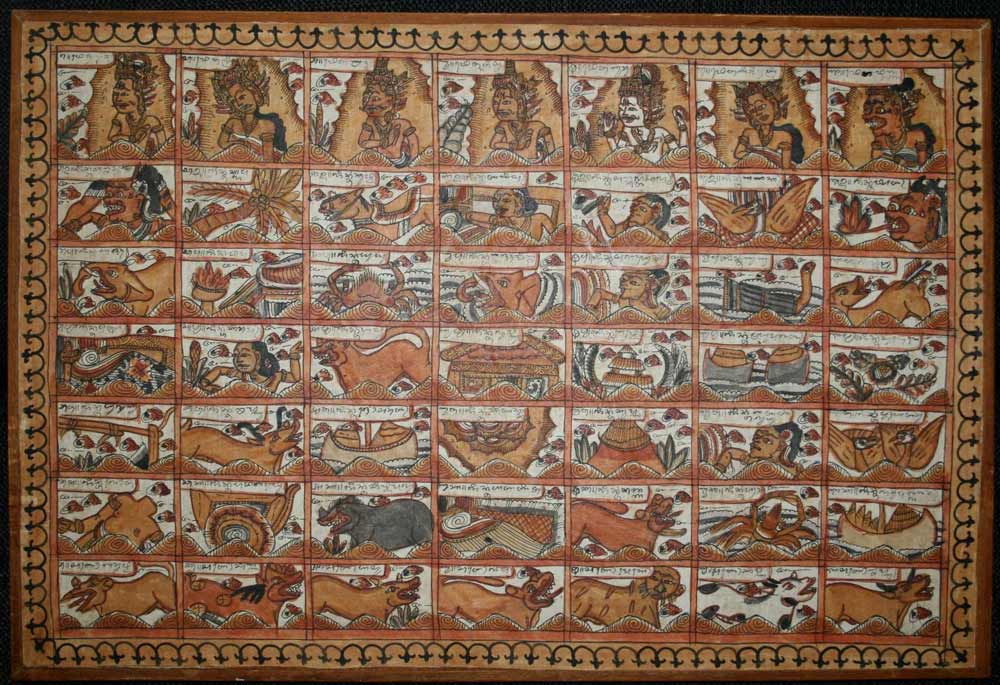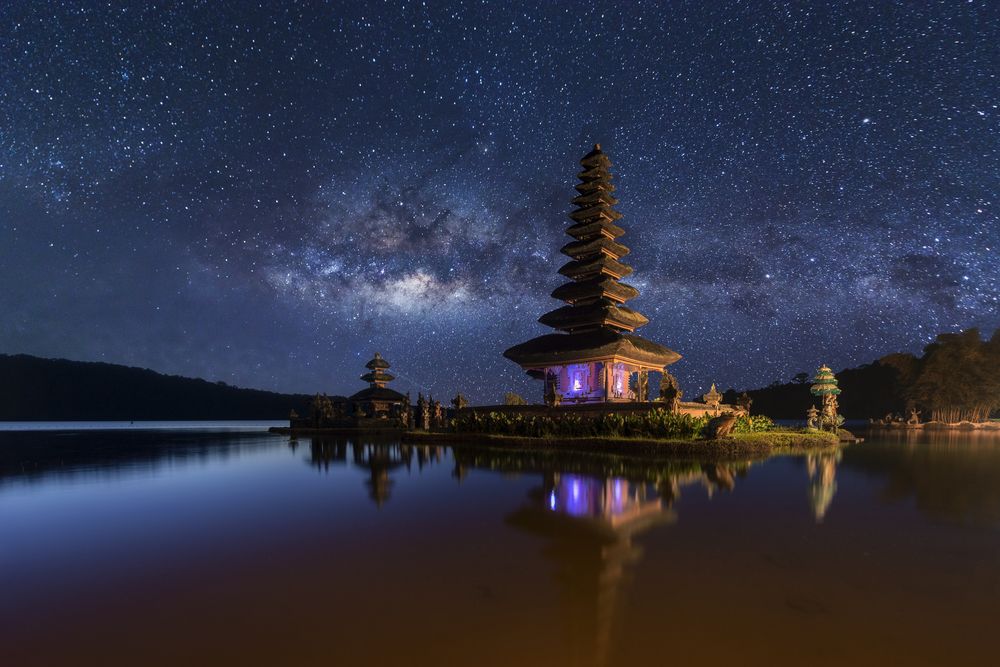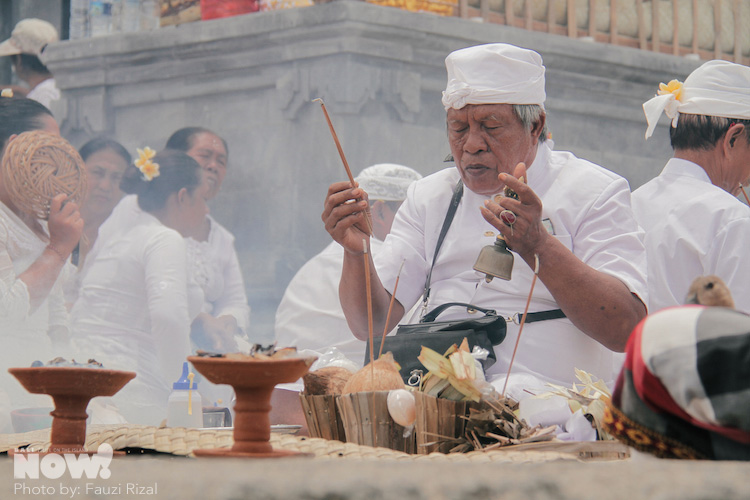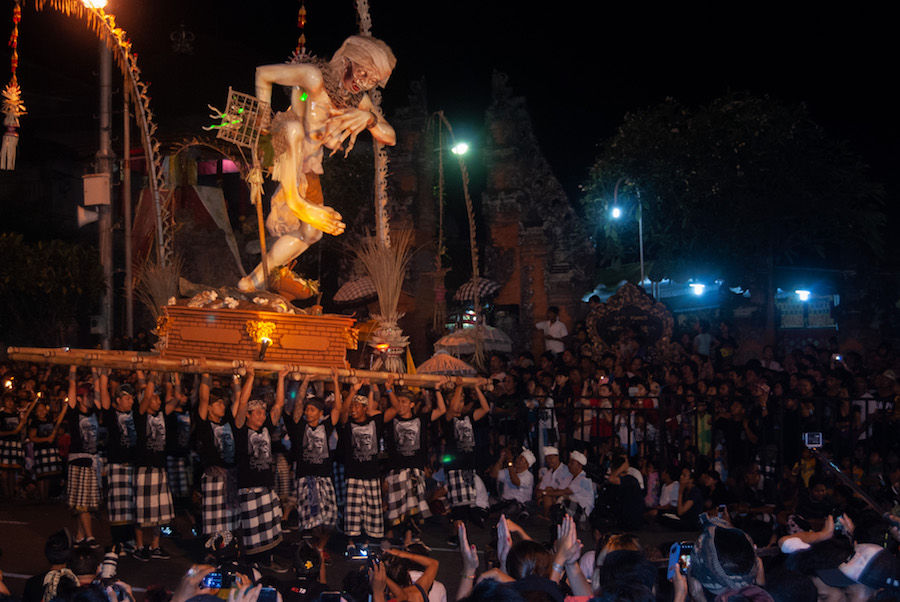Many have heard of Nyepi, Bali’s Day of Silence, and understand that for 24 hours the entire island undergoes a strict period of no work, no activity and no sound. But exactly what is Nyepi? It is the first day of a new year, specifically that of the Saka Calendar, which is traditionally observed through quiet introspection.
In this article we explore the intricacies of this unique day, its symbolism and importance at a ‘macrocosmic’ level, the pre-Nyepi rituals and more, and indeed the ‘evolution’ that this holy day has gone experienced.
Contents:
(1) Understanding the Balinese Calendars
(2) Observances on Nyepi Day
(3) Pre-Nyepi Rituals and Traditions
Understanding the Balinese Calendars

Bali’s measure of time, for one, is different. Officially, Bali has adopted the Gregorian calendar, which rules the modern activities of the Indonesian nation-state. But, in all other matters, still paramount in Bali, the island is ruled by the rhythm of its own cyclic time.
Uniquely, this time is organised in two parallel calendar cycles: the Pawukon and the Saka calendars, which circulate within one another, each defining its propitious and nefarious days. The Pawukon calendar is a 210-day calendar cycle of 30 seven-day weeks (wuku). The Pawukon and its complex time system of wewaran (“weeks” of up to ten days) determine much of Balinese temples and family rites. Yet, the Saka ‘lunar-solar’ calendar cycle is no less important: it primarily rules agricultural ritual life.
The Saka comprises twelve months (sasih) of 28 to 30 days, amounting to 354-355 days a year. There are regular suppressions of days – every 63 days – and additions of months (nampih) every thirty months to adjust the lunar system to the solar one. Each sasih begins the day after a new moon (tilem), with the equally important mid-sasih moment of the full moon (purnama).
These are the principal moments of ritual importance of the Saka Calendar – purnama (full moon) and tilem (dark moon). Many important temple festivals take place on the purnamas of the kapat (fourth), kenam (sixth) dan kadasa (tenth) month; tilem days are favourite times of festivals at the temples of the dead (pura dalem).
Of Indian origins, the Saka calendar begins at the origins of the Scythian (or ‘Indo-Saka’) Empire under King Kanishka, this was in 78 AD. According to the tradition, a holy brahmin brought the calendar to Java and Bali, known as Sang Hyang Aji Saka, beginning the first Hindu Kingdom of Java known as Medang Kemulan (legend states he found his kingdom after killing the indigenous giants…)
What is Nyepi? The First Day of the New Saka Year

The Balinese New Year of the Saka calendar falls on the morrow of the new moon of this vernal calendar. According to the Balinese time system, this morrow begins not at midnight, but with the rising of the sun in the early morning (typically 6AM). From that moment onward, and for a full cycle of day and nighttime, the island will be under a shroud of total silence. So, don’t expect you will be able to do anything. You will have to stay at the place where you are residing.
On this day, no planes take off or land; no traffic is allowed. No one is in fact allowed outside of one’s residence, except for ambulances and the village watch (pecalang) enforcing the obligation of silence toward possible unruly youths. Radio and TVs are tuned down, and, when night comes, light has to be kept to a minimum, with a level of tolerance only allowed in the main hotels.
And there you would better know that not even love-making is supposed to disturb the absolute stillness and silence of this sacred day: too many demons at work! So your only companionship is to be the shrill of insects, the barking of stray dogs and the fluttering of leaves in your nearby garden. A day, in fact, that one would like to occur more than once a year.
What exactly is the purpose of Nyepi?
Everything is done on this day to prevent humans from making any mark, any action or karma.
Nyepi has indeed to be understood within the framework of Hindu religion, according to which the ultimate goal of humans is to interrupt the Samsara cycle of reincarnation and merge into the cosmic void or sunya. This is called achieving moksa, the ultimate enlightenment.
Humans try to achieve this goal by controlling their actions (karma) and thus subduing their inner “demons”. Few, however, achieve moksa. Nyepi is the symbolic ritual replay of this sunya endeavour at the level of the island. On this day, all signs of life are put to rest to create a feeling of restored purity. Because, after Nyepi, ordinary days succeed one another and with them, impurity accumulates for a whole yearly cycle, until, a full year later, on the eve of the next Nyepi (or a few days before), a big tawur ritual cleansing has again to take place.
There are four main rules of Nyepi, called Catur Brata Penyepian: Catur means four, Brata means vow/undertaking and Penyepian literally means to silent. Amati Geni: no fire and light, Amati Karya: no working, Amati Lelungan: no traveling, Amati Lelanguan: no entertainment.
The Pre-Nyepi Rituals and Festivities

As mentioned, after a full year of accumulating impurities, Bali must be completely cleansed. This is done with island-wide melasti ceremonies.
During a melasti ceremony, the effigies of all the gods of the village temples are taken in procession to the sea –or river—to be bathed there under the guardianship of the lord of the sea, Batara Baruna. Then at midday, a ritual cleansing takes place at the main crossroads of the village under the guidance of the three main high priests of Balinese religion: a Pedanda Siwa priest who addresses the gods and forces of the upper world, a Pedanda Buda priest those of the middle world, and a Sengguhu priest those of the netherworld.
But this is not over yet. At night, thus on the night just before Nyepi proper, all the demons of Bali are symbolically let loose on the roads in a carnival of fantastic monsters, the Ogoh-Ogohs. This carnival, called Ngrupuk, is Nyepi’s polar opposite. Instead of silence, there is a maximum of noise; instead of calm, excitation. The ritual release of accumulated demonic forces.

Their procession of ogoh-ogoh is seemingly unending. It lasts for hours, deep into the night, to eventually end up at the local cemetery, where the demons are burned. The world is then pure and everything will start anew, everything is thus cleansed, ready for a brand new year, starting with a full day of Catar Brata Penyiapan.
Looking for somewhere to stay during Bali’s Day of Silence? Find our Nyepi Hotel Packages here.









